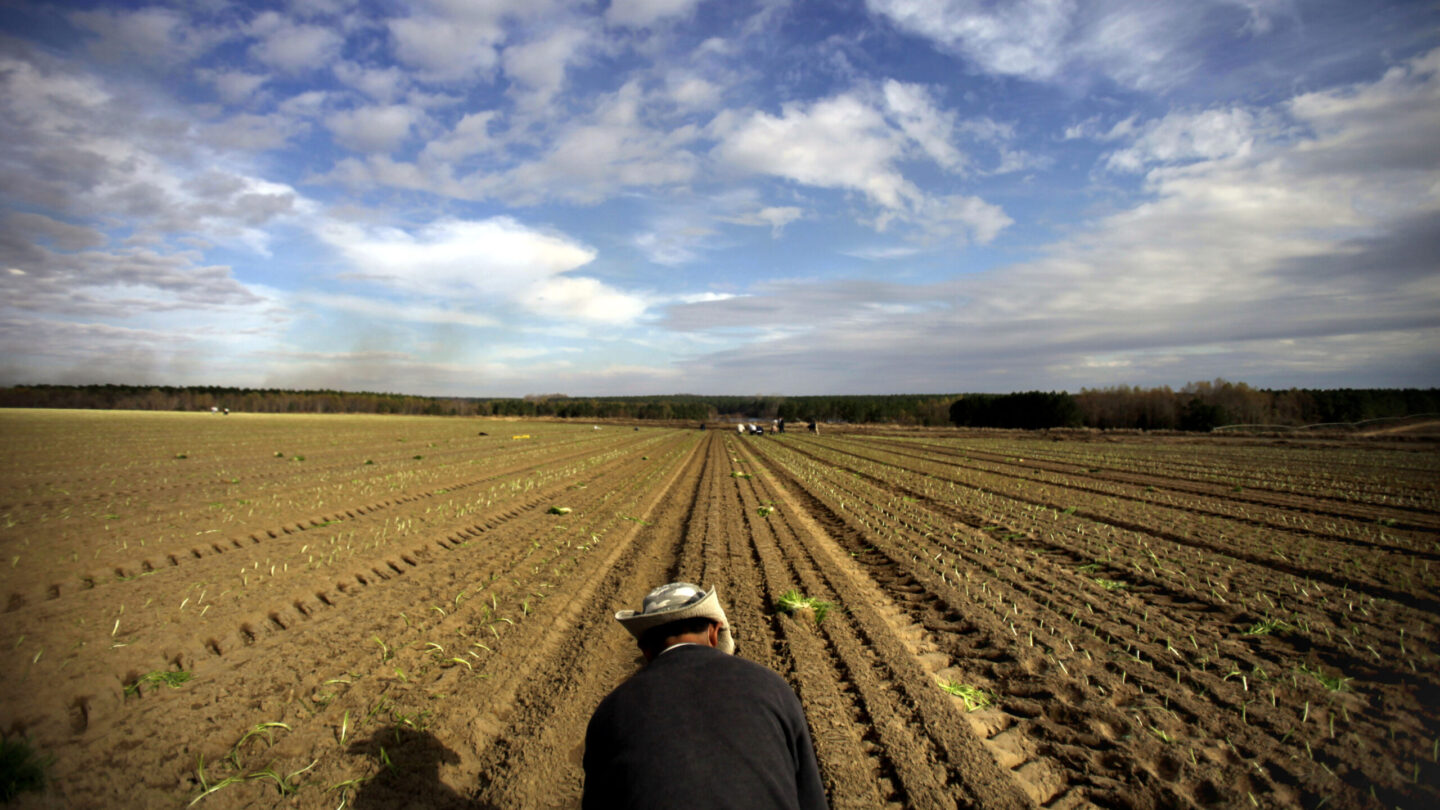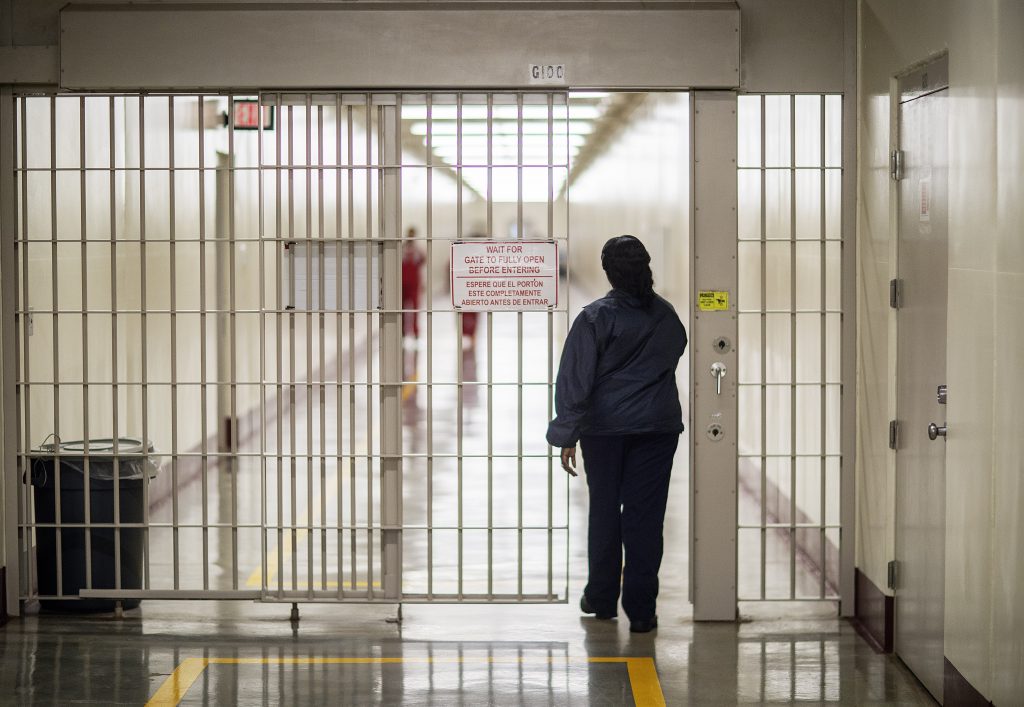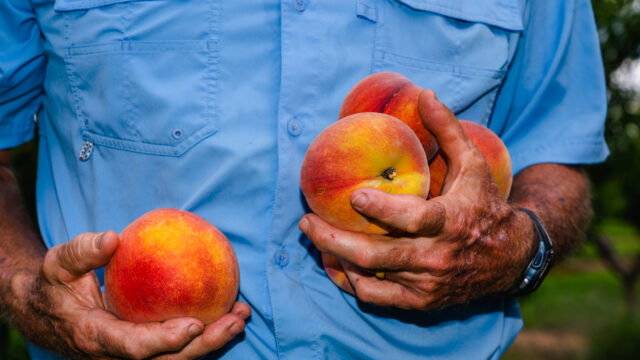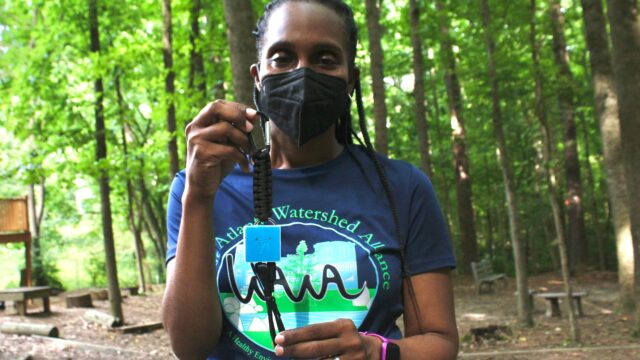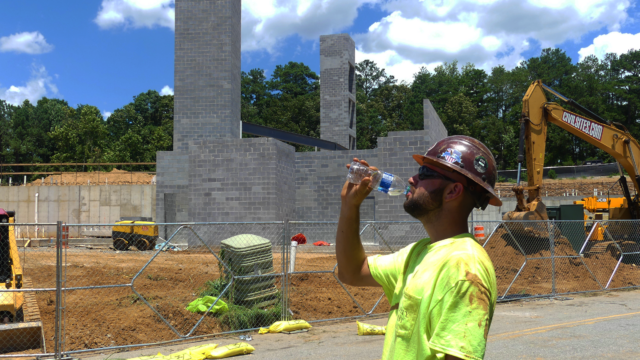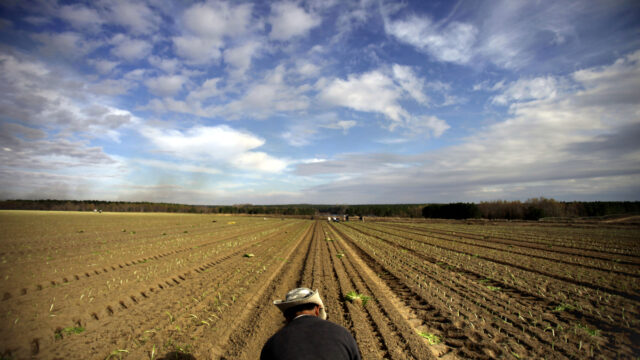During the first corn and tomato harvest of the season, temperatures in South Georgia can approach 90 degrees every day for weeks.
As climate change drives temperatures higher, a network of Georgia clinics and researchers is trying to help the farmworkers who bolster Georgia’s $70 billion agricultural industry stay safe from the heat.
Georgia’s six Farmworker Health Program sites provide medical care across 21 counties. Some of that care is routine, and much of it involves health education.
“I don’t care if they come three times in a month, we talk to them about hydration,” said Sheila Ramer, a Nurse Practitioner at Decatur County Farmworker Clinic in Bainbridge. “Not only protecting themselves from the sun, but the clothing … and we give a lot of those things away in our outreach.”
Ramer’s clinic is just north of the Florida state border. She said her clinic alone sees about 3,500 farmworkers a year for a combination of things like diabetes, muscle injury and heat-related illness.
“We’ve seen dehydration, it’s manifested both in their symptoms when they present, as well as some of their lab studies that we see,” she said.
Prolonged dehydration hits the kidneys hardest, said Emory professor Roxana Chicas. She leads field research on safety for farmworkers.
“We see acute kidney injury happening just over the course of one workday,” she said.
There are no federal standards for heat protection for outdoor workers, though OSHA is working on developing rules. In the meantime, OSHA can investigate heat-related complaints, and recently fined a Florida company nearly $30,000 after a farmworker died in April from heat-related illness.
According to the CDC, more than 700 people on average die each year from the heat, but experts believe that’s likely an undercount.
Outdoor workers, including farmworkers, are some of the most at-risk from rising temperatures. They’re often wearing long sleeves and pants to protect their skin from the sun and the chemicals used on crops. And Chicas said no state or federal agency tracks how many farmworkers die each year from the heat.
The brutal heat is just one of the challenges migrant farmworkers face as they work their way up the East Coast, following the harvest.
Many migrant farmworkers are undocumented, Chicas said, and they are in a precarious intersection of a lack of immigration protection, incredibly physically taxing jobs and unequal access to healthcare.
Farmworkers are paid by the piece — a pay structure that does not incentivise taking breaks. Stopping to rest directly impacts a person’s income. But Chicas said a different pay structure and mandatory breaks could help protect farmworkers as the climate keeps heating up.
In the meantime, providing healthcare tools that will be useful throughout the harvest season is important, said Jodie Guest, who leads the Emory Farmworker Project. Twice a year, the project brings students in various branches of medicine to migrant farmworker clinics in south Georgia to provide care.
“Access to proper therapeutics for them is incredibly important and very complicated to achieve when you’re moving somewhere every six weeks,” Guest said.
Students work with clinicians to give sustainable healthcare, whether that looks like enough medication, physical therapy exercises to address repetitive motion injury or coping techniques to help with the isolation of working far from family and on the road.
“One of the most important things that we talk about with the students is to be with this person and say, ‘I’m here for you. I see you,’” Guest said.
The Emory project will go back to South Georgia in October to join the ongoing work at the farmworker clinics. Guest said they will continue to augment wraparound care where they can as the summer ends.
This story is part of WABE’s The Heat Effect series.
